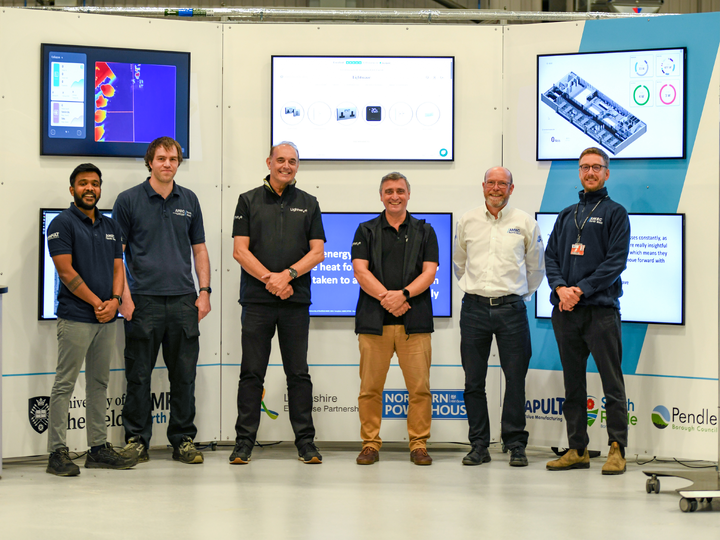Smart power control for sustainability: unlocking advanced machinery power automation for SMEs
Challenge
To develop smart 3 phase relay sockets accessible for any size of enterprise through design, system architecture, market potential validation and the provision of a technical strategic route to market.
Background
LightwaveRF, a UK-based SME, designs and manufactures smart end devices for energy and carbon-saving operations. These devices remotely control electrical appliances and are mainly used by mid to large commercial organisations, due to their higher upfront costs.
In recent work, LightwaveRF partnered with London Stadium to implement a smart energy management system, achieving a 60 per cent reduction in energy consumption. This initiative delivered a return-on-investment (ROI) in under 12 months, resulting in significant cost savings.
By intelligently scheduling appliances, such as fridges and water heaters, to operate only when necessary, the stadium is now saving thousands of pounds annually, demonstrating the power of smart technology in reducing operational costs and enhancing sustainability.
Founder John Shermer and partnership director Simon Lane aim to make energy management solutions for heavy machinery accessible to all businesses, including SMEs. To achieve this, they have come up with an innovative idea: retrofittable three-phase smart relay sockets.
This end-device enables real-time power control and monitoring of energy usage for any three-phase machinery. By offering an affordable power control and automation solution, the goal is to help any industry reduce operational costs and lower their scope 2 emissions, making sustainable energy management more accessible for businesses of all sizes.
Having already installed smart sockets at AMRC North West in Preston, John and Simon approached the AMRC for a collaboration with its low carbon and sustainability team (Senthil Kumar Raman and James Valentine) and battery and automation team (Mustajab Siddiqui and Richard Heggie) to conduct a comprehensive technical feasibility study of their new product.
Innovation
AMRC North West engineers, Senthil Kumar Raman and Mustajab Siddiqui, worked with the Lightwave team to evaluate hardware design, system architecture and regulatory requirements.
The project granted LightwaveRF access to AMRC North West’s expertise and facilities, supported by High Value Manufacturing (HVM) Catapult grant funding.
This ensured the product meets industry standards for wider market deployment, and the study confirmed the product's technical viability and provided a roadmap for integration and scalability.
Using LightwaveRF’s original designs, the engineers at AMRC North West also conducted a thorough technical feasibility study, looking at developing back and front end architecture, design development, market demand and regulatory compliance. They carefully analysed the hardware, validated communication protocols and highlighted end devices performance analysis to ensure the product would meet any industrial standards and help to achieve their current net zero goals. Alongside this, they developed a technical strategic route to ensure smooth market entry.
The engineers then presented their findings in a comprehensive report, offering practical recommendations and clear next steps for refining the product and ensuring it is ready for industrial and commercial use.
Result
The report formed a vital piece of research for LightwaveRF into its new product, giving the company confidence in both their product and approach, and providing a technical and strategic route to develop and take the product to market.
Impact
Because of the AMRC North West team’s background in low carbon, sustainability, energy systems and industrial automation technology development, alongside their understanding of industry, they were able to provide insights about how organisations - including SMEs - are working towards implementing new innovative automated technologies to achieve net zero and other sustainability goals.
As an SME, LightwaveRF benefited from the expertise of AMRC North West and the HVM Catapult grant funding, which provided essential time and engineering resources for thorough research.
The collaboration between AMRC North West and LightwaveRF not only accelerated development efforts, but also opened the door to additional grant opportunities, fostering continued collaboration, growth and innovation.
The report confirmed to LightwaveRF that there is a market for the retrofitable 3-phase smart relay socket product, and also provided a business case which the company has now taken to investors as a proof of possibility for further investments.

